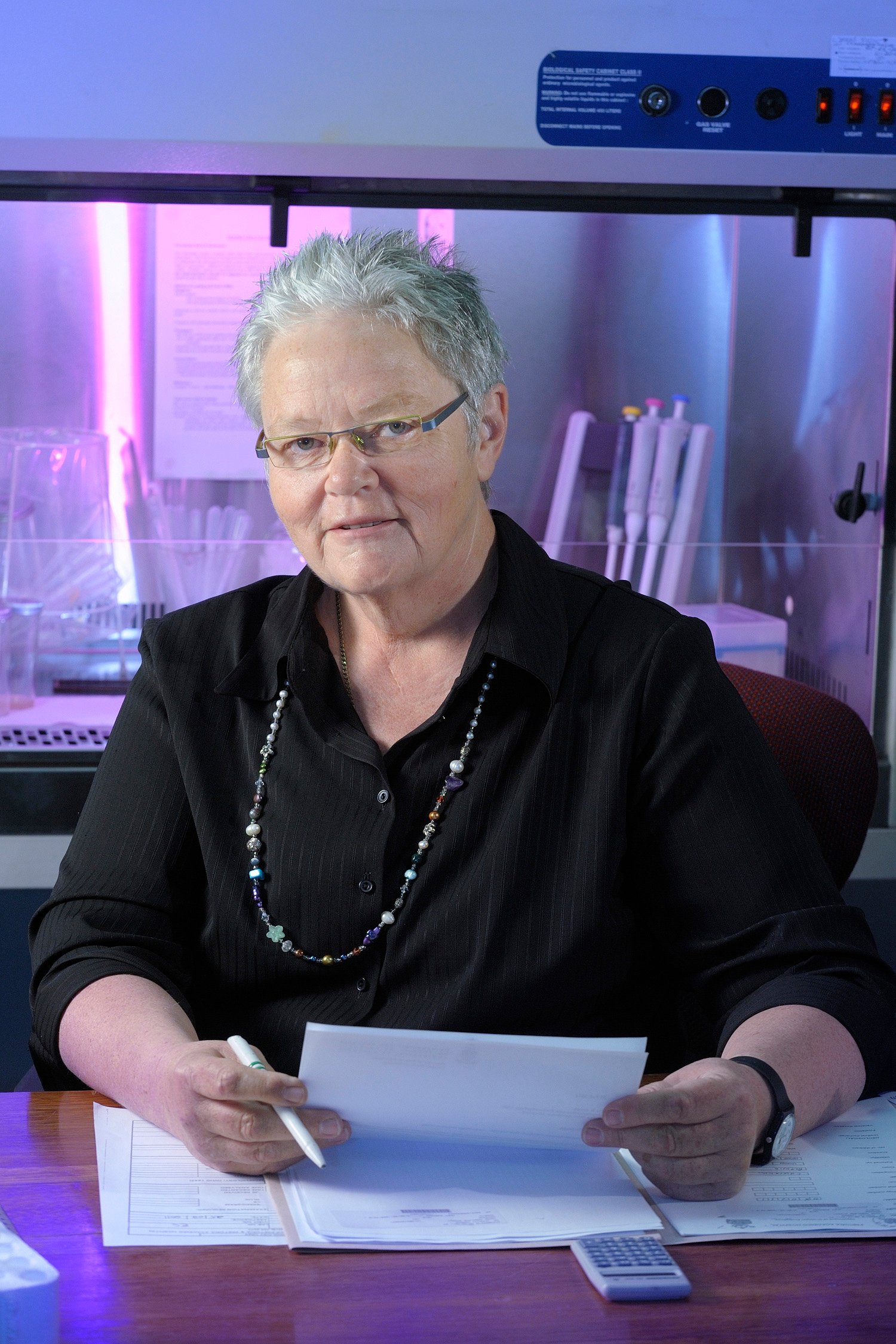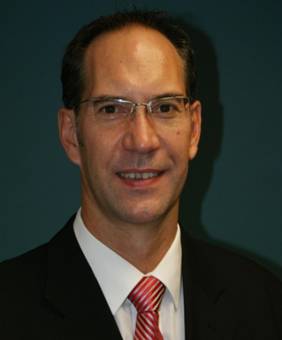
|
Cluster: Water and Health
|
||
 |
Professor Kfir is currently serving as a senior advisor to the University of Pretoria Water Institute. From 2001-2011 she held the position of the CEO of the South African, Water Research Commission (WRC). In 2000, she joined the National Research Foundation as an Executive Director: Knowledge Management. From 1996-2000, she served as the CSIR’s Technology Manager and from 1994-1996, she was acting Director of the Division of Water Technology at the CSIR. From 1986 – 1994, she was acting as a Group Leader of the Microbiology Group and thereafter as the Programme Manager of the Health Programme, both at the CSIR. Prof Kfir has a PhD from the University of Pretoria and MSc (Cum Laude) in Management from London Business School. Her doctorate study compared indirect and direct re-use of water focused on direct reclamation of sewage effluent into water of potable quality. Thereafter, she was involved in a wide range of research on water and health issues including research on Microcystis (a prominent blue-alga) bloom, land and water uses (from domestic to agricultural use) and water microbiology, chemistry toxicology and biotoxicology. Dr Kfir authored and co-authored about 80 refereed publications and more than 200 business reports. She co-supervised both PhD and MSc students. She has served on national research committees, presented many papers and keynote addresses and was an invited speaker at numerous local and international conferences. She has served on numerous international committees and Boards and chaired a number of global initiatives such as Streams of Knowledge, a coalition of resource centres addressing water and sanitation. She was actively been involved in NEPAD’s initiative aiming at building centres of excellence for water research in Africa, and was and has been representing South Africa’s academia in many gatherings addressing water research. |
|
|
|
Maureen Taylor Prof Taylor is an Associate Professor/Senior Medical Scientist and is a joint appointee in the Department of Medical Virology, Faculty of Health Sciences, University of Pretoria and National Health Laboratory Service, Tshwane Academic Division. Prof Taylor has an MSc from Rhodes University and a DSc from University of Pretoria. For her doctorate study she investigated the propagation in cell culture and infectivity for baboons of human hepatitis A virus. Her research focuses on enteric viruses with particular emphasis on food- and waterborne viruses. Investigations involve the detection, characterisation and molecular epidemiology of selected enteric viruses, namely hepatitis A virus, adenoviruses, astroviruses, rotaviruses and caliciviruses. She works in close conjunction with a number of water utilities and the Outbreak Response Unit of the National Institute for Communicable Diseases. She has a number of national and international collaborators and participates in the international network on noroviruses (NORONET). Prof Taylor has authored and co-authored over 40 publications in ISI-rated peer-reviewed journals and has been the keynote speaker at national and international conferences. She has served on national research committees and has supervised a number of PhD and MSc students. She has been invited to review publications from a number of national and internal journals and is currently on the Editorial boards of the Journal of Applied Microbiology and recently established Food and Environmental Virology journal. Recent Publications Mans J, Netshikweta R, Magwalivha M, van Zyl WB, Taylor MB. Diverse norovirus genotypes identified in sewage polluted river water in South Africa. Epidemiology and Infection (available on line: doi:10.1017/S0950268812000490) Bosch A, Sánchez G, Abbaszadegan M, Carducci A, Guix S, Le Guyader FS, Netshikweta R, Pintó RM, van der Poel WHM, Rutjes S, Sano D, Taylor MB, van Zyl WB, Rodríguez-Lázaro D, Kovaè K, Sellwood J. Analytical methods for virus detection in water and food. Food Analytical Methods 2011:4:4-12. Kiulia NM, Netshikweta R, Page NA, van Zyl WB, Kiraithe MM, Nyachieo A, Mwenda JM, Taylor MB. The detection of enteric viruses in selected urban and rural river water and sewage in Kenya, with special reference to rotaviruses. Journal of Applied Microbiology 2010;109:818-828. Current Projects Development and application of cost effective techniques for the sensitive recovery and detection of enteric viruses in surface and treated drinking water samples. An investigation into the link between water quality and microbiological safety of fruit and vegetables from the farming to the processing stages of production and marketing Characterisation of caliciviruses in clinical specimens and environmental samples in South Africa. Detection and characterisation of hepatitis A virus in clinical specimens and environmental samples in South Africa Assessment of selected environmental water samples in Kenya for the presence of clinically important enteric viruses |
|
 |
Riana Bornman Profile Prof Riana Bornman is a lecturer, Extraordinary Professor and Head of Andrology in the Department of Urology in the Faculty of Health Sciences. She is also Extraordinary Professor in Environmental Health at the School of Health Systems and Public Health. Prof Bornman’s area of expertise centres on the adverse health effects of the use of DDT as pesticide. She is currently involved in a study of DDT and the loss of clinically recognised pregnancies in South Africa. A report to the South African Water Research Commission (WRC) on ’DDT for malaria control: Effects in indicators and health risk’ of which Prof Bornman was the project leader, was completed and submitted in 2009. Since 2008 Prof Bornman has acted as temporary adviser to the Stockholm Convention on Persistent Organic Pollutants (WHO/UNEP) and to the World Health Organisation (WHO) Consultation on DDT Hazard Assessment. She was also consulted at the WHO DDT Exposure Assessment Expert Meeting at the University of Bradford, UK in December 2009. She is a Working Member of the Group of the UNEP/WHO effort to update the endocrine disrupter chemical (EDC) document of 2002. Prof Bornman holds membership of various national and international societies, including the International Society of Environmental Epidemiology (ISEE), the Society of Environmental Toxicology and Chemistry (Europe) (SETAC) and the African Branch of the Society of Environmental Toxicology and Chemistry (SETAC Africa). Prof Bornman has been an invited speaker at many conferences and workshops around the globe. Recent Water related Publications Fatoki OS, Bornman M, Ravandhalala M, Chimuka L, Genthe B, Adeniyi A: Phthalate ester plasticizers in freshwater systems of Venda, South Africa and potential health effects. Water SA, 2010, 36(1):117-126 Bornman MS (Riana), Bouwman Environmental pollutants and diseases of sexual development in humans and wildlife in South Africa: harbingers of impact on overall health? Reprod Dom Anim 47 (Suppl. 4), 1–6 (2012); doi: 10.1111/j.1439-0531.2012.02094.x Bornman MS; Barnhoorn IEJ; Aneck-Hahn NH A pilot study on the occurance of endocrine disruptive chemicals in a DDT-sprayed area. 2009/11/27; Research Report No.KV220/09. Marchand MJ, van Dyk JC, Pieterse GM, Barnhoorn IEJ, Bornman MS: Histopathological Alterations in the Liver of the Sharptooth Catfish Clarias gariepinus from Polluted Aquatic Systems in South Africa. Environ Toxicol 2009, 24:133-147 McClusky LM, Sean Patrick, Irene E. J. Barnhoorn, Jacobus C. van Dyk, Christiaan de Jager, Maria S. Bornman: Immunohistochemical study of nuclear changes associated with male germ cell death and spermiogenesis. J Mol Hist 2009, 40:287–299. Barnhoorn IEJ, Bornman MS, Jansen van Rensburg C, Bouwman H: DDT residues in water, sediment, domestic and indigenous biota from a currently DDT-sprayed area. Chemosphere 2009, 77(9): 1236-1241 Fatoki OS, Bornman M, Ravandhalala M, Chimuka L, Genthe B, Adeniyi A: Phthalate ester plasticizers in freshwater systems of Venda, South Africa and potential health effects. Water SA 2010, 36 (1): 117-126. Van Dyk JC, Marchand MJ, Pieterse GM, Barnhoorn IEJ, Bornman MS: Histological changes in the gills of Clarias gariepinus (Teleostei: Clariidae) from a polluted South African urban aquatic system. Afr J Aqua Sci 2009, 34 (3): 283-291. Mlambo SS, van Vuren JHJ, Barnhoorn IEJ, Bornman MS: Histopathological changes in the reproductive system (ovaries and testes) of Oreochromis mossambicus following exposure to DDT. Environ. Toxicol. Pharmacol. 2009, 28(1):133-139. de Jager C, Aneck-Hahn NH, Bornman MS, Farias P, Leter G, Eleuteri P, Rescia M, Spano M: Sperm Chromatin integrity in DDT-exposed young men living in a malaria area in the Limpopo Province, South Africa. Human Reproduction, 2009, 24 (10):2429-2438. Van Dyk JC, Bouwman H, Barnhoorn IEJ, Bornman MS. DDT contamination from indoor residual spraying for malaria control. Science of the Total Environment 408 (2010) 2745–2752. Barnhoorn IEJ, Bornman, MS, Van Dyk JC, Pieterse GM: Intersex in feral indigenous freshwater Oreochromis mossambicus, from various parts in the Luvuvhu River, Limpopo Province, South Africa. Ecotoxicology and Environmental Safety 73 (2010) 1537–1542. De Jager C; Aneck-Hahn NH; Barnhoorn IEJ; Pieters R; van Wyk JH; van Zijl C; Bornman MS; 2011/01/01; Detection and analysis of endocrine disrupting compounds in water Research Report No.1816/1/10 de Jager C; Aneck-Hahn NH; Barnhoorn IEJ; Bornman MS; van VurenJHJ; Burger AEC; Swemmer A; van Zijl C; van Wyk S; Jonker M. Endocrine Disrupting Chemical (EDC) Activity and Health. Effects of Identified Veterinary Growth Stimulants in Surface and Ground Water. WRC Research Report No.1686/1/11; 2011/05/01. Available at http://www.wrc.org.za/Pages/KH_ResearchReport.aspx?dt=1&ms=4%3b&start=11 Kerry Brink, Johan Jansen van Vuren, Riana Bornman. The lack of endocrine disrupting effects in catfish (Clarias gariepinus) from a DDT sprayed area. Environ. Saf. (2012), doi:10.1016/j.ecoenv.2012.01.006 Current Water related Projects The endocrine disrupting chemical and estrogenic activity status in bottled water – (R170 000- 3yrs; CANSA; 2011-2013, PI Dr Natalie Aneck-Hahn) Health risks associated with endocrine disrupting chemical (EDC) status and estrogenic activity in bottled water and water from selected distribution points in Pretoria and Cape Town – (R 150 000 -3yrs; MRC; 2012-2014, PI Dr Natalie Aneck-Hahn)
EDC Toolbox II: Additional bioassays for EDC screening – (Proposal submitted; GWRC/WRC collaboration; 2012 - PI Dr Natalie Aneck-Hahn) |
 |
C (Tiaan) de Jager Profile Tiaan de Jager is the Deputy Dean Research in the Faculty of Health Sciences at the University of Pretoria (UP). He is a Professor in Environmental Health in the School of Health Systems & Public Health (SHSPH) and an Extraordinary Professor in Andrology in the School of Medicine. He is also the Director of the UP Centre for Sustainable Malaria Control. He graduated in 1996 with a PhD in Reproductive Biology and also completed the Management Development Programme (MDP) in 1998. He did an international post-doctoral study at Laval University, Quebec City, Canada in 2001. He has a C1 NRF rating (2011-2016), recognizing him as an established scientist with international recognition. His research focus is on environmental endocrine disrupting chemicals, toxicology and male reproductive health. His publications on the organochlorine pesticide DDT, used for malaria vector control, received international recognition and impact on policy. His new multidisciplinary initiative, the UP Research Centre for Sustainable Malaria Control, will have new research opportunities for the students at UP and will focus on the elimination of malaria. He is also a key member of the Environmental Chemical Pollution and Health Research Unit. Recent Water related Publications Leusch FDL, de Jager C, Puijker L, Levi Y, Lim R, Tremblay LA, Wilson VS, Sacher, Chapman HF. Interlaboratory comparison of five in vitro bioassays to measure estrogenic activity in synthetic mixtures and environmental waters. Environmental Science & Technology. 2010;44:3853-3860. Impact factor: 4.458 Current Water related Projects Estrogenic activity and endocrine disrupting chemical (EDC) status in water obtained from selected distribution points and bottled water in Pretoria and Cape Town. The aim is to compare the EDC activity in tap water with that in bottled water. Funded by the Water Research Commission (WRC). Agrochemicals and Water. The major goal of this project is to determine the extent and level of contamination by agricultural chemicals (pesticides, herbicides and plant growth regulants), including Endocrine Disruptive (ED) properties and selected risk assessments for the environment (animal and human health). Funded by the Water Research Commission (WRC). The Endocrine Disrupting Chemical and Estrogenic Activity Status in Bottled Water. The major goal of this project is to determine the Endocrine Disrupting Chemical and Estrogenic Activity Status in Bottled Water in South Africa. It is funded by the Cancer Association of South Africa (CANSA). |
 |
Natalie Aneck-Hahn Dr Natalie Aneck-Hahn started working in the Department of Urology in March 1992 as a senior medical technologist and progressed through the ranks to Deputy Director: Medical Natural Sciences which she has held since 2004. She was appointed Director of the newly established Environmental Chemical Pollution and Health (ECPH) Research Unit in the Faculty of Health Sciences at UP. She is also currently an Extra-ordinary Lecturer in the School of Health Systems and Public Health.
Dr Aneck-Hahn obtained her National Diploma in Medical Technology with specializations in Hematology (1987) and Microbiology (1989) and a National Diploma Microbiology (industrial) in 1990 with distinctions in Chemistry and Physics. In 1992 she completed her National Higher Diploma in Microbiology (with a distinction in Microbiology). In 1998 she registered and completed her MTech degree (Cum Laude). She received Dtech degree from the Tshwane University of Technology in 2003. Her thesis was titled “Screening for anti-oxidant pollutants and estrogenicity in drinking water in poverty stricken areas of South Africa”. From 2003-2005 she was accepted as a Post Doctoral student at the School of Health Systems and Public Health under the leadership of Prof Christiaan de Jager. Dr Aneck-Hahn has a number of research outputs in the form of conferences, technical reports (Co-author on 5) and publications as first author/presenter or co-author and presenter. For national conferences she has 63 presentations, 33 as co-author and 30 as presenter. International conferences she has 37, 25 as co-author and 12 as presenter. She has 12 publications in peer-reviewed/refereed journals of which four were as first author and 7 published full-length conference papers/keynote addresses as co-author. Recent Water related Publications Mahomed SI, Voyi K, Aneck-Hahn NH and De Jager C. Oestrogenicity and chemical target analysis of runoff water from small-sized industries in Pretoria, South Africa. Water SA. 2008, 34(3): 357-364.
Aneck-Hahn NH, Bornman MS and de Jager C. Preliminary assessment of oestrogenic activity in water sources in Rietvlei Nature Reserve, Gauteng, South Africa. African Journal of Aquatic Science, 2008, 33(3): 249-254. Aneck-Hahn NH, Bornman MS de and Jager C. Oestrogenic activity in drinking waters from a rural area in the Waterberg District, Limpopo Province, South Africa. Water SA, 2009, 35(3):245-251. Technical reports Slabbert, JL, Venter EA, Moletsane M, van Wyk, JH, Schillack V, Aneck-Hahn NH and Marais P. An investigation into the occurrence of steroidal hormones (estrogens) in sewage effluent using biological/biochemical and chemical techniques: 2003-2005. In Burger, A.E.C. (Ed.), 2007. Implementation of a Research Programme for Investigating Endocrine Disrupting Contaminants in South African Water Systems. Vol. 2, Appendix 3C. WRC Report No. 1402/1/07.
Slabbert JL, Venter EA, Moletsane M, van Wyk JH, Blaise C and Aneck-Hahn NH. An investigation of the estrogenic activity in water from selected drinking water treatment processes. Report to the Water Research Commission by CSIR Natural Resources and the Environment. Report Number 1532/1/07, 2007. MS Bornman, IEJ Barnhoorn, B Genthe, JHJ van Vuren, GM Pieterse, NH Aneck-Hahn, JC van Dyk, MJ Marchand, MC van Zijl, KA Brink, SM Patrick, KJ Bremner and C de Jager. 2010. DDT for Malaria Control: Effects in Indicators and Health Risk. Report to the Water Research Commission of South Africa. Report No. 1674/1/09. Genthe B, Steyn M, Aneck-Hahn NH, van Zijl C and de Jager C. A Framework for Drinking Water Quality Guidelines for Endocrine Disruptors. Water Research Commission – K5/1749/1. 2010. De Jager C, Swemmer A, Aneck-Hahn NH, Van Zijl C, van Wyk S, Bornman MS, Barnhoorn IEJ, Jonker M, van Vuren JHJ and Burger AEC. Endocrine Disrupting Chemical (EDC) Activity and Health Effects of Identified Veterinary Growth Stimulants in Surface and Ground Water. Report to the Water Research Commission of South Africa. Report No. K5-1686 2011. De Jager C, Aneck-Hahn NH, van Zijl C, van Wyk H. The Compilation of a Toolbox of Bio-assays for Detection of Estrogenic Activity in Water.WRC K5/1816. 2011. Pletsche BI, Mwila K, van Zijl MC, Aneck-Hahn NH, van Dyk JS and Burton M. Rapid enzymatic detection of organophosphorus and carbamate pesticides in water. WRC Report no 1902/1/11, 2011 Current Water related Projects
Estrogenic activity and endocrine disrupting chemical (EDC) status in water obtained from selected distribution points and bottled water in Pretoria and Cape Town. (R200 000; WRC; 2011-2012)
The endocrine disrupting chemical and estrogenic activity status in bottled water – (R170 000- 3yrs; CANSA; 2011-2013) Health risks associated with endocrine disrupting chemical (EDC) status and estrogenic activity in bottled water and water from selected distribution points in Pretoria and Cape Town – (R 150 000 -3yrs; MRC; 2012-2014) Investigation of the contamination of water resources by agricultural chemicals and the impact on environmental health – (WRC; PI: J Dabrowski (CSIR); 2010-2015) EDC Toolbox II: Additional bioassays for EDC screening – (Proposal submitted; GWRC/WRC collaboration; 2012 - ) |
 |
Ms Susan Van Wyk is currently working in the Environmental Chemical Pollution and Health (ECPH) Research Unit in the Faculty of Health Sciences and is the Chief Medical Technologist (Andrology) in the Department of Urology. Ms Van Wyk has a MSc in Community Health – specialization Environmental Health, that she obtained at the University of Pretoria in 2012. The title of her dissertation was “The effects of growth stimulants used at cattle feedlots on reproductive health and thyroid function of Sprague Dawley rats” which included the investigation of estrogenic activity in water sources in and around selected feedlots in South Africa. Ms Van Wyk is also works in Andrology which investigates environmental effects of endocrine disrupting chemicals on male reproductive health. Recent Water related Publications Technical reports: De Jager C, Swemmer A, Aneck-Hahn NH, Van Zijl C, Van Wyk S, Bornman MS, Barnhoorn IEJ, Jonker M, van Vuren JHJ and Burger AEC. Endocrine Disrupting Chemical (EDC) Activity and Health Effects of Identified Veterinary Growth Stimulants in Surface and Ground Water. Report to the Water Research Commission of South Africa. Report No. K5-1686 2011. Current Water related Projects Estrogenic activity and endocrine disrupting chemical (EDC) status in water obtained from selected distribution points and bottled water in Pretoria and Cape Town. (R200 000; WRC; 2011-2012) The endocrine disrupting chemical and estrogenic activity status in bottled water – (R170 000- 3yrs; CANSA; 2011-2013) Health risks associated with endocrine disrupting chemical (EDC) status and estrogenic activity in bottled water and water from selected distribution points in Pretoria and Cape Town – (R 150 000 -3yrs; MRC; 2012-2014) Investigation of the contamination of water resources by agricultural chemicals and the impact on environmental health – (WRC; PI: J Dabrowski (CSIR); 2010-2015) EDC Toolbox II: Additional bioassays for EDC screening – (Proposal submitted; GWRC/WRC collaboration; 2012 - ) |
 |
Mrs Catherina Van Zijl is currently working in the Environmental Chemical Pollution and Health (ECPH) Research Unit in the Faculty of Health Sciences and is the senior medical natural scientist in the Department of Urology. Mrs Van Zijl has a MSc (Cum Laude) in Human Physiology, that she obtained at the University of Pretoria in 2006 and is currently registered for a PhD in Environmental Health at the School of Health Systems and Public Health. She is a cell culture specialist currently focusing on bioassays for detecting endocrine disrupting chemical activity in environmental water and sediment. Recent Water related Publications Technical reports MS Bornman, IEJ Barnhoorn, B Genthe, JHJ van Vuren, GM Pieterse, NH Aneck-Hahn, JC van Dyk, MJ Marchand, MC van Zijl, KA Brink, SM Patrick, KJ Bremner and C de Jager. 2010. DDT for Malaria Control: Effects in Indicators and Health Risk. Report to the Water Research Commission of South Africa. Report No. 1674/1/09. Genthe B, Steyn M, Aneck-Hahn NH, van Zijl C and de Jager C. A Framework for Drinking Water Quality Guidelines for Endocrine Disruptors. Water Research Commission – K5/1749/1. 2010. De Jager C, Swemmer A, Aneck-Hahn NH, Van Zijl C, van Wyk S, Bornman MS, Barnhoorn IEJ, Jonker M, van Vuren JHJ and Burger AEC. Endocrine Disrupting Chemical (EDC) Activity and Health Effects of Identified Veterinary Growth Stimulants in Surface and Ground Water. Report to the Water Research Commission of South Africa. Report No. K5-1686 2011. De Jager C, Aneck-Hahn NH, van Zijl C, van Wyk H. The Compilation of a Toolbox of Bio-assays for Detection of Estrogenic Activity in Water.WRC K5/1816. 2011. Pletsche BI, Mwila K, van Zijl MC, Aneck-Hahn NH, van Dyk JS and Burton M. Rapid enzymatic detection of organophosphorus and carbamate pesticides in water. WRC Report no 1902/1/11, 2011 Current Water related Projects Estrogenic activity and endocrine disrupting chemical (EDC) status in water obtained from selected distribution points and bottled water in Pretoria and Cape Town. (R200 000; WRC; 2011-2012) The endocrine disrupting chemical and estrogenic activity status in bottled water – (R170 000- 3yrs; CANSA; 2011-2013) Health risks associated with endocrine disrupting chemical (EDC) status and estrogenic activity in bottled water and water from selected distribution points in Pretoria and Cape Town – (R 150 000 -3yrs; MRC; 2012-2014) Investigation of the contamination of water resources by agricultural chemicals and the impact on environmental health – (WRC; PI: J Dabrowski (CSIR); 2010-2015) EDC Toolbox II: Additional bioassays for EDC screening – (Proposal submitted; GWRC/WRC collaboration; 2012 - ) |
|
Cluster: Law and Governance
|
|
|
|
Profile Nic Olivier studied at the universities of Pretoria, Leiden, Potchefstroom and South Africa where he obtained the following degrees: BA (Law), LLB, LLD (Leiden), LLD (Pretoria), BA (Honnours)(Development Administration), MA (Afrikaans and Linguistics) and D.Phil. He has been involved in the following academic disciplines: Legal History, Law of Delict, Legal Pluralism, Human Rights, Property Law, Land Law and Development Law as well as Constitutional Law and Higher Education Law. Nic Olivier has more than twenty-five years of experience in higher education, government administration and management of a significant number of both governmental related and academic programs and projects. His key areas of expertise are in governance and development (including inter-governmental relations, relationships within the SADC context, as well as within the three South African spheres of government - including also their interrelationship with traditional institutions), program management (various government transformation programs), strategic management, policy analysis, human rights and legal pluralism. He has also published widely in academic journals and has contributed to a number of text-books. At present he is director of the SADC Centre for Land-related, Regional and Development Law and Policy at the University of Pretoria, focussing on applied research and consultancy work for international organisations, the SA and other SADC governments, as well as participating in multi-disciplinary and inter-institutional research with a strong policy and implementation focus, specialising in Higher Education, rural development, governance, land reform, and in environmental and IGR issues, at transnational, national, regional (provincial) and local level. He has managed and co-managed a number of transformative national programs, e.g. as National Program Coordinator for the National White Paper Program on Traditional Leadership and other Traditional Institutions in South Africa, the National Policy Research Program on Vulnerable Communities in South Africa, and various other national programs for the South African Government. He was the South African researcher for an international comparative research project (initiated by the World Bank Institute) in respect of the relationship between traditional governance institutions and elected local government with the view on effective service delivery and socio-economic development of local communities.He has been appointed as co-chairperson of the SERA Task Team on Sustainable Rural Development (Southern Education and Research Alliance, consisting of the University of Pretoria and the CSIR (SA Council for Scientific and Industrial Research)). Within this context, he is responsible for the overall coordination of a multi million dollar integrated rural development programme in a deep rural area within the Limpopo Province. In addition, he was responsible for coordinating the drafting of the South African government initiated Operational Framework which provides for integrated sustainable post-settlement support in respect of South Africa’s Land Reform Programme. In 2005 he was appointed as the African coordinator for the Rural Livelihoods Consortium which aims at the revitalisation the Southern African agricultural development research network whilst working to improve and diversify rural livelihoods in 12 sites (in Malawi, Zambia, and Mozambique). Since 1994, Professor Olivier has been involved in the transformation of the HE system in South Africa, at policy, regulatory and implementation (institutional) level. Within this context he was a member of the Task Team on Governance (of the NCHE), undertook research on the role, powers, functions and duties of HE Councils (and provided training to a number of reconstituted councils) and of Institutional Forums, as well as analysed and made recommendations on the rationalisation of institutional Statutes. At present he is a member of the UP Task Team on governance, institutional autonomy, academic freedom and the relationship between Government and the HE sector. He is also involved in the drafting of the UP policy and implementation frameworks as regards Community Engagement. He was recently appointed as a member of the Audit Panel responsible for the quality assessment of the University of the Free State. Recent Publications Various research projects focusing on (a) Land Reform and (b) Preservation and sustainable development of agricultural land, and the relationship of water related governance and provision matters to these functional areas. Current Projects Reactivation of the Xalata Irrigation Scheme in Cofimvaba (Eastern Cape) in order to facilitate the beneficial use of arable land, create job opportunities, encourage food production and enhance food security (role of UP still to be finalized), depending on funding to be made available. Project to run fro 2012 to 2015. Funding to be requested from DST. Establishment of database of all principal legislation and Court cases dealing directly or in passing with water and water-related issues. This is a self-funded project on-going since July 2011. |
|
CLUSTER:Water and Livestock
|
|
|
|
Profile Norman Casey attained the BSc (Agric) and MSc (Agric) degrees at the University of Natal and the DSc (Agric) at the University of Pretoria. In 1979, he accepted an academic appointment at the University of Pretoria in animal production physiology. As professor, he was the departmental head: Department of Animal and Wildlife Sciences, from 1992 to 2005. He is chairperson the Ethics Committee, Faculty of Natural and Agricultural Sciences and sits on the Senate Committee on Research Ethics and Integrity. He is Honorary President and former President of the South African Society of Animal Science and is a Ministerial appointee on the Council for Natural Scientific Professions. He is President of Congress of the World Association of Animal Production, was Vice-president of the International Goat Association (2000 to 2004) and chaired the 8th International Conference on Goats (2004) and 9th International Symposium on Ruminant Physiology (1999). He has received awards for research and academic excellence and for services to the Animal Science profession. He serves on the editorial boards of Livestock Science, Small Ruminant Research and the SA Journal of Animal Science. He has sixty-nine scientific peer reviewed publications, eighty conference proceedings and presentations, twenty-two books and reference manuals, thirty-eight contracted scientific reports and has supervised forty-five MSc and seventeen PhD candidates and promoted two Honoris Causa candidates. |
|
CLUSTER: Water and Crops
|
|
|
|
Prof. John Annandale is the acting head of the Department of Plant Production and Soil Science at the University of Pretoria where he lectures on environmental biophysics and irrigation management. Annandale is involved with research in sustainable agricultural use of municipal waste water sludge: matching nutrient supply and demand, water productivity of crops, guidelines for irrigation management in pasture production, agroforestry systems for improved food production through the efficient use of water. Recent Publications Tesfamariam, E.H., Annandale, J.G. and Steyn, J.M. 2010 Water stress effects on winter canola growth and yield. Agron. J., 102(2), 658-666. (This paper won the Protein Research Foundation award for the best paper published in a scientific journal in 2010.)
Van der Laan, M., Stirzaker, R.J., Annandale, J.G., Bristow, K.L. & D |
Copyright © University of Pretoria 2024. All rights reserved.
Get Social With Us
Download the UP Mobile App